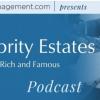Welcome back to the 142nd episode of Financial Advisor Success Podcast!
My guest on today’s podcast is Matt Oechsli. Matt is the founder and CEO of The Oechsli Institute, which does primary research into affluent investors and how they select advisors, and then provides financial advisor marketing and sales consulting and coaching on how to leverage those research insights to grow their firms by reaching more affluent clients.
In this episode, we talk in depth about how to reach and connect with affluent clients by forming better relationships with them. From why knowing the names of a client’s children and pets really is so important in the relationship-building process, to the reason why having non-business social lunches with clients, or what Matt calls a $1,000 per hour activity and are so effective to deepen the relationship and get more referrals, the importance of doing intimate events with a small number of key clients at a time, in addition to broad-based client appreciation events, and how in the end, the point isn’t merely to become friends with clients, but that social interactions with clients are really all about having opportunities to demonstrate that you’re worthy of their trust, to continue working with you and hopefully to refer you as well.
We also talk about how to bring better structure to your client relationship-building efforts. From developing a relationship calendar of the key activities you intend to engage them with your top clients throughout the year, why it’s so crucial to focus relationship building activities on a subset of your top clients instead of trying to reach everyone at once, why you should target one surprise and delight opportunity with key clients every week, the right way to ask for referrals without just asking for a referral, and how even as advisors try to engage in more social relationship-building activities with clients, it’s still important to go into those meetings with strategic intent for success.
And be certain to listen to the end, where Matt talks about what he calls the three C’s of good client communication: be concise, conversational, and confident, the reason that advisors tend to get stuck in their businesses, and his advice to new advisors entering the business on what it will take to be successful in the future.
Listen to the podcast







